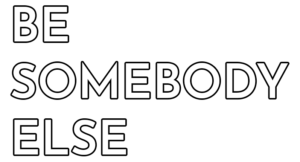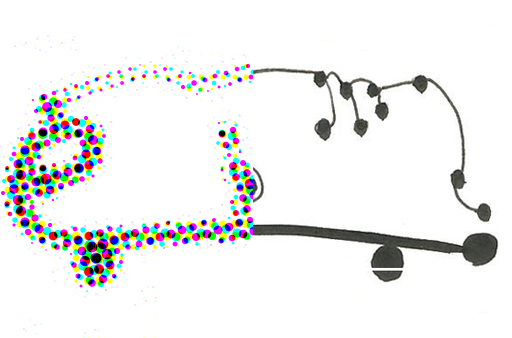by Tom Tomaszewski | Mar 6, 2024 | ALIENATION, DESOLATION, FRUSTRATION, HELPLESSNESS, HESITATION, INEXPERIENCE, MONOTONY
Insight and information can help you avoid repeating past ways of feeling, thinking and acting. You need to protect your capacity to think with that information, rather than to remember it. Your capacity to think freely is what will keep you safe and doing life the way you want.
Here are three things that you can do three times each day which will help prevent your body from becoming overloaded by negative intensity… worries, resentments and so on … the kinds of thing that will leave you stuck. causes a loss, sometimes a radical loss, of momentum. These three things promote positive intensity: the joy of being able to feel relaxed and thoughtful, the pleasure of being in harmony with your life, and the ability to start and stop things when you need to.
Box Breathing
Experiment with different amounts of time for the in-breath, pause and out-breath to see what suits you most for a situation. Box breathing is something you can always turn to discreetly
Don’t get taken for a ride
Stop being taken for a ride. Go and see films specifically to explore whether staying watching them or leaving is the best option. After you leave you need to be able to tell someone why you left. How long can you stay before you’re confident the film is not going to deliver what you need? You can experiment like this with any kind of experience, really. Always hold a place for your right to leave, work out how to do this in ways that feel right for you and others (ie storming out might not be the best option – quietly departing might be instead. Do you really want to make a point? What will the effect of that be on?
Instant sound bath
Buy a tuning fork or two and sound these close to your ear for an instant experience of being present in the world, connected to something outside of you that leaves you feel grounded in yourself.
by Tom Tomaszewski | Dec 13, 2023 | DESOLATION, FRUSTRATION

DESOLATION / LUST
I’m not sure what I mean. I was thinking, if only Pete Shelley and Beyoncé had done something like Shane MacGowan and Kirsty McColl. I love all that stuff. I suppose I’m getting into the selfishness of love. In the first place it’s totally selfish. When I feel and say, ‘I love you’, who’s feeling the love? Me. And then, sometimes, perhaps, the other person feels some love. Saying ‘I love you’ might confirm something, spark something, fire something up.
If you aren’t aware of all this stuff, especially the bit about love being selfish, read on. This piece is about conditional loving (the kind of thing I was doing thinking I’d have loved Pete Shelley and Beyoncé to have done … I don’t imagine they would have loved it, really.).
It’s like this: if I say ‘I love you’ so that I hear the same thing coming back to me, so that I feel loved, maybe I should have kept my mouth shut. If I say and feel ‘I love you’, I hope I pick my moment so that it may be the right moment for you. Cuff it. What love sounds like, actually, isn’t up to me. It’s a multi-person thing.
The other thing: if I do or say something expecting some gratitude I should possibly never have done it. Not always, but usually, doing something and expecting someone to be pleased won’t end well.
Hoping is another matter.
Someone said to me the best thing ever about love: faith, hope, trust, they said. These are the ways love can happen between two people. Loving involves being open to another person and if you feel desolation in your life, or frustration, I suspect you have spent many hours on your own with your love. That’s devastating. What can you do?
Anticipate the selfishness in love and mediate it. That’s all you can do, really. Look for it in your loving and in what you hear from somebody else, and don’t necessarily recoil when you find it. It will be there: it’s a matter of what is also there. The love +.
Love + might dispossess. It may do something that works against the ‘wanting you to be mine’ thing, like what happens in that stupid children’s game, Buckaroo , where something trips and all the baggage flies off. The possessiveness of love can pull or push other people, the ones you say you love, into carrying you and all of the stuff you find too much.
Filter love as you send it and as you receive it. Imagine love like a postcard rather than a letter. ‘Wishing you were here’ rather something in a sealed envelope. It’s always the sealing off that’s the problem. Sealed off people can’t love or be loved. Sealed off love can’t be felt. Sealed off thoughts can’t be loving.
Anybody can see what’s on a postcard, and of course there are times when you can’t show what you feel (or face the consequences) and only a letter or even something more secret will do. But imagine, just imagine, somebody fair-minded, someone who you’ve never seen show contempt, and trust what you feel they might think of your message.
by Tom Tomaszewski | Sep 23, 2023 | DESOLATION

DESOLATION / LUST
Pay attention to things that you’d normally not be drawn to. Does any of it interest you?
If something does, concentrate on it. Just look at it. Where did it come from? Why is it there? Do you like it? What do your thoughts guide you to do? Consider doing it.
The way that your mind works means certain things, which might otherwise hold great significance for you, may remain if not invisible then as if they are not worth a second glance.
Think of Horatio Nelson peering into his telescope and announcing “I see no ships.“ His decision to ignore the approaching ships that he could in fact see was a strategic one. Your mind operates strategically, too, adding or subtracting significance to the way your recognise objects out in the world, to thoughts, to feelings, to dreams. Repression, dissociation: there are a various ways of clinically describing why this happens and what goes on inside you while you do it.
Sometimes you may do it only at certain times: when you are stressed, for example. Your focus changes according to your mental state, which shifts in line with whatever your body is doing to try and make everything in an ongoing experience add up and leave you okay. The problem is that ‘an ongoing experience’ will include many thoughts and feelings about events from the past that suggest how what’s happening presently may end. It doesn’t take much to make what you are trying to do now become an attempt to copy whatever your mind tells you would have been the right thing to do then, on a previous occasion.
That’s all very complicated. Simply focusing on what may normally escape your attention can give you a vital new perspective on life. You may start to see the world more fully, less telescoped, and including things, which, once upon a time might have been best avoided.
You may start to understand the special place in your life that something might have which could in the past have been too painful to include. And even if it’s simply a sock given to you by someone who loved you, I hope that you start to understand how lovable you really are.



